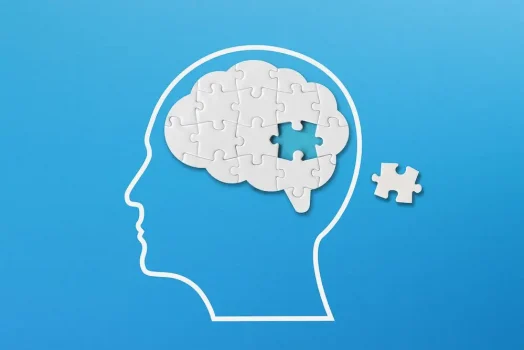Bipolar Disorder’s effects on your body can be terrifying. When experiencing mania, you can feel abnormally cheery, easily scared, or wired, increased activities or agitation, sleep disruptions, racing thoughts, and so much more. A person may also experience difficulties with their thinking and memory because of the disorder. Poor memory and difficulty concentrating can, for some individuals with bipolar disorder, make it very difficult to carry out the daily tasks of life, including work and school.
Historically, memory problems associated with bipolar disorder have been seen resulting from the highs of mania and the lows of the depressive side of bipolar disorder. Certain studies have also suggested that bipolar disorder sufferers may have memory problems as a result of neurological changes the condition has caused to their brains.
Some of these could be associated with changes in the prefrontal cortex, which plays a role in planning, attention, problem-solving, and memory, among other functions; the hippocampus, which is an important structure for storing memories; as well as the anterior cingulate cortex, which is connected to both cognitive and emotional functions in the brain.
Mania, Depression, and Memory
Manic episodes seem to be the worst time for memory and cognition problems, according to some studies. When a person is running at such a high energy level, they have problems encoding new information in their memory and also have problems accessing what they remember. There is also evidence that depression can affect memory. You are less able to focus and be in the moment when you are distracted or having adverse thoughts about yourself, your world, or your future.
Recently, it has been demonstrated that patients who are bipolar also experience memory nuisances and other cognitive impairments. In light of this, some doctors have started to wonder whether mood swings are the real cause behind patients experiencing memory loss issues. Other theories include:
- Differences in brain chemistry and function are associated with bipolar disorder. Depression might cause memory problems both mentally – by occupying your mind – and physiologically, by inhibiting the connectivity between nerve cells.
- Bipolar medication side effects. Several commonly prescribed medications for bipolar disorder, lithium being one of the most notorious, can also trigger memory problems.
Learning to Live With Cognitive Challenges
The prevalence of memory problems with bipolar disorder varies from person to person, but many people with the condition do have difficulties. When diagnosed early and managed well, these effects may be minimized for those at risk.
If you have trouble with your short-term memory, the following tips may help:
- Keep track of all appointments and contacts on your smartphone.
- Maintain a journal in which you can record important things, such as spending records.
- Keep a weekly to-do list or a wall calendar with a space for notes.
- Placing post-it notes with reminders at strategic points like the front door can help.
- Keep important items like your keys, glasses, and wallet in a safe place.
- Try to establish a regular daily routine, including a regular bedtime and mealtime. Establishing a sleep schedule and a diet will help to encourage healthy habits.
Understanding how bipolar disorder can affect a person’s thinking and memory, and that mood changes are not the only signs of the disorder, can help family members and individuals cope with the challenges the disorder presents.
Staying Positive
As scary as dealing with memory loss and cognitive problems can be, it’s important to maintain a positive outlook and stay proactive in order to live well with bipolar disorder. A few ways to improve your quality of life as a bipolar patient include:
- Following your treatment plan. Maintaining your treatment plan is the most important thing you can do when you are dealing with bipolar disorder. A comprehensive treatment plan should include medication management, psychotherapy, sleep management, good nutrition, and exercise.
- Support groups. There are several ways that spending time with people who suffer from bipolar disorder can help you maintain a positive outlook. In addition to providing you with encouragement, a support group can also provide you with useful coping strategies. It is also beneficial for you to express your feelings to people who understand what you are going through in order to relieve tension and stress
- Trusting your support system. Positive reinforcement from the people who care about you can go a long way toward keeping you focused, so it’s important to allow yourself to rely on your loved ones. Having someone to talk to can help you cope with your bipolar disorder, keep you motivated, and make you smile. They can provide you with reinforcement or a positive boost when you are feeling down.
Life Adjustment Team
If you or a loved one is suffering from bipolar disorder, contact Life Adjustment Team today. We are here to help you get your life back on track. Contact us today to learn more about our programs.








